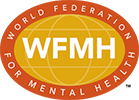- A recent study revealed that parents with difficult childhood experiences are more prone to spanking children.
- Experts warn against the mental health issues that arise from spanking and other forms of physical punishment.
Psychology Of Parents With More Difficult Childhoods
Parents with adverse childhood experiences (ACEs) may face unique psychological challenges in their parenting journey. They may carry unresolved emotional issues from their own childhood—such as trauma, neglect, or abuse—which can impact their ability to parent effectively.
These parents may struggle with feelings of inadequacy, low self-esteem, and self-doubt, which can affect their ability to provide consistent and nurturing care to their own children.
Additionally, parents who have experienced adversity in their own childhoods may have difficulty forming secure attachments with their children, as they may struggle with trust and intimacy.
Moreover, their past experiences may lead them to use physical punishment or harsh disciplinary methods for minor misbehavior or inconvenience, as they may lack appropriate coping skills or have unresolved emotional issues.
Why Do Parents Spank Their Children?
Parents may spank their children for a variety of reasons. This may include:
- Cultural or societal beliefs
- A lack of knowledge about alternative discipline methods
- A belief that spanking is an effective form of discipline
- Normalization of spanking as an acceptable and appropriate discipline
- Frustration and stress linked to parenting
In fact, a study at the University of Manitoba, Canada, examined the relationship between parents’ adverse childhood experiences (ACEs) history and their use of spanking as a form of discipline with their own children. A community survey of Canadian parents and adolescents revealed that parents who had experienced more ACEs were more likely to report spanking their children.
Such parents’ punishment of choice may also be attributed to their own struggle with unresolved emotional issues and lack of knowledge about alternative discipline methods. The researchers recommend addressing parents’ own childhood adversities as an important step in child maltreatment prevention efforts.
The lead authors of the study elaborated: “Understanding parental ACEs history … [and] early identification of at-risk behaviors is a critical aspect of prevention and should be a global public health priority. This is an important goal since preventing violence against children, including spanking, is necessary to optimize healthy child development, reduce the risk of further violence and intergenerational transmission of family violence, and advance children’s right to protection.”
Should Parents Spank Their Children?
Experts advise against the use of spanking or any physical punishment, as research suggests that such forms of punishment can have negative effects on children’s mental and emotional well-being. Frequent spanking in the hands of parents may lead to increased aggression, antisocial behavior, and mental health issues such as depression, anxiety, and lower self-esteem.
Spanking children can also harm the parent-child relationship, leading to decreased trust, increased fear, and disrupted attachment bonds. Children who experience spanking may also internalize the belief that violence is an acceptable means of resolving conflicts, perpetuating a cycle of aggression.
Parenting Tips For Adults With Difficult Childhoods
Parenting can be especially challenging for adults with difficult childhoods. Tips for navigating these challenges include:
- Seeking therapy to address unresolved emotional issues
- Educating oneself about positive discipline methods
- Breaking negative cycles
- Showing empathy and mindfulness towards one’s child
- Practicing positive parenting strategies that focus on setting clear expectations, providing consistent consequences, and promoting healthy communication
Moreover, prioritizing personal healing and nurturing a healthy parent-child relationship can create a positive environment for the child’s well-being. It also bodes well to remember that parenting is a rewarding experience but a continuous learning process.
To seek help and support—from family and friends or professionals—for dealing with parenting challenges is not only necessary but favorable for any fulfilling parenthood.












